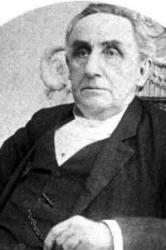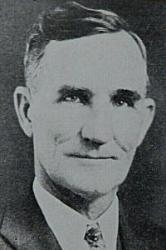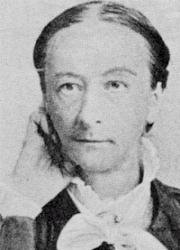Planning worship?
Check out our sister site, ZeteoSearch.org,
for 20+ additional resources related to your search.
- |
User Links
Person Results
‹ Return to hymnal







Export as CSV
E. H. Stokes

1815 - 1897 Person Name: Elwood H. Stokes Hymnal Number: d32 Author of "Fill me now" in Telegrams He was president of the Ocean Grove Campmeeting Association.
E. H. Stokes
Edith Sanford Tillotson

1876 - 1968 Hymnal Number: d107 Author of "The robin's song" in Telegrams Edith Sanford Tillotson was born and lived her entire life in Corona, New York. She wrote hymns for children as well as poems and librettos.
Dianne Shapiro, from "The Singers and Their Songs: sketches of living gospel hymn writers" by Charles Hutchinson Gabriel (Chicago: The Rodeheaver Company, 1916)
Edith Sanford Tillotson
Elizabeth Codner

1824 - 1919 Hymnal Number: d68 Author of "Even me" in Telegrams CODNER, Elizabeth (née Harris) was born in Dartmouth, Devon in 1823. Croydon, Surrey, 28 March 1919. She was interested in the mission field from an early age, and two of her early publications were entitled The Missionary Ship (1853) and The Missionary Farewell (1854) relating to the Patagonia Mission (later the South American Missionary Society). She married William Pennefather at the Mildmay Protestant Mission in London, and edited the mission’s monthly Woman’s Work in the Great Harvest Field. At age 17, she was editing a magazine for the Patagonia Mission, later the South American Missionary Society. She died in Croydon, Surrey on 28 March 1919.
NN, Hymnary
Elizabeth Codner
W. McDonald
1820 - 1901 Person Name: WIlliam McDonald Hymnal Number: d35 Author of "I am trusting, Lord, in thee" in Telegrams McDonald, Rev. William. (Belmont, Maine, March 1, 1820--September 11, 1901, Monrovia, California). Becoming a local preacher in the Methodist Episcopal Church in 1839 he was admitted to the Maine Conference in 1843, being transferred to that of Wisconsin in 1855 and of New England in 1859. For a number of years he was editor of the Advocate of Christian Holiness. In addition to being a writer of biographies and religious books, he compiled, or assisted in compiling, a number of song books of the gospel song type, among them being the Western Minstrel (1840), Wesleyan Minstrel (1853), Beulah Songs (1870), Tribute of Praise (1874). This last book was that which had been compiled by McDonald and L.F. Snow, and re-edited by Eben Tourjée, appeared in 1882 as the official hymnal of the Methodist Protestant Church. From 1870 he spent many years in evangelistic work before his retirement to Monrovia.
Sources: Metcalf, Frank J., American Writers and Compilers of Sacred Music; Tillett, Wilbur F., Our Hymns and Their Authors; Nutter and Tillett, Hymns and Hymn Writers of the Church; McCutchan, Robert G., Our Hymnody; Benson, L.F., The English Hymn.
--Robert G. McCutchan, DNAH Archives
W. McDonald
Bernard Barton

1784 - 1849 Hymnal Number: d126 Author of "Walk in the light, so shalt thou [and you shall] know" in Telegrams Barton, Bernard, commonly known as the "Quaker Poet," was born in London Jan. 31, 1784, and educated at a Quaker school at Ipswich. In 1798 he was apprenticed to Mr. S. Jesup, a shopkeeper at Halstead, Essex, with whom he remained until 1806, when he removed to Woodbridge, Suffolk, and entered into business with his brother, as a coal and corn merchant. On the death of his wife at the end of the first year of their married life, he proceeded to Liverpool, where he acted as a private tutor for a short time. He returned to Woodbridge in 1810, where he secured an engagement in the local bank of the Messrs. Alexander. This appointment he held for 40 years. He died at Woodbridge, Feb. 19, 1849. During the same year his daughter published his Poems and Letters, with a Memoir. His poetical works were numerous, including:—
(1) Metrical Effusions , 1812; (2) Poems by an Amateur, 1818; (3) Poems , 1820; (4) Napoleon, and other Poems, 1822; (5) Poetic Vigils, 1824; (6) Devotional Verses founded on Select Texts of Scripture, 1826; (7) A Widow's Tale, 1S27; (8) New Year's Eve, 1829; (9) The Reliquary, 1836; (10) Household Verses, 1845. A complete list of his works is given in Joseph Smith's Descriptive Catalogue of Friends' Books, Lond., J. Smith, 1867, vol. i. pp. 196-200.
From these works about 20 pieces have come into common use as hymns. These are found principally in the Scottish Evangelical Union Hymnal, on the one hand, and various American Unitarian collections on the other. The best known are, “Lamp of our feet, whereby we trace," and "Walk in the light, so shalt thou know." From his Devotional Poems, &c, 1826, the following have passed into the Scottish Evangelical Union Hymnal, 1878:—
1. Fear not, Zion's sons and daughters. Gracious Promises. This is part of a poem on Isaiah xliii. 1, “Fear not, Jacob, tabulated."
2. Hath the invitation ended? Invitation.
3. See we not beyond the portal? Present vision Imperfect. This is part of the poem on 1 Cor. xiii. 12, “Dim and dark our present vision."
4. Those who live in love shall know. Peace.
5. Would'st thou share this benediction! Poor in Spirit.
In addition, there are also in various collections:—
6. Around Bethesda's healing wave. Consolation. This is on pp. 182-185, in his Napoleon, and other Poems, 1822, in 10 stanzas of 6 lines. A cento therefrom is given in a few American hymnals, including Mr. Beecher's Plymouth Collection, No. 746, as, "The waters of Bethesda's pool."
7. There is a life more dear. Spiritual Life. From the Devotional Verses, 1826, p. 96, into Kennedy, 1863, No. 1177, with the omission of stanza v.
8. Say not the law divine. Spiritual Law. Also from the Devotional Verses, 1826, p. 34, into various American hymnals, generally Unitarian, as the Hymn and Tune Book, Boston, 1868, No. 342, &c, where, however, it is rewritten from an irregular metre to S.M. This had previously appeared in Hedge and Huntington's Hymns for the Church of Christ, Boston, U.S., 1853.
Other hymns, given in great part in American Unitarian collections, are annotated under their respective first lines.
-- John Julian, Dictionary of Hymnology (1907)
======================
Barton, Bernard, p. 116, i. Other hymns in common use:—
1. God made the country, yet in scenes. Country Life. This begins with stanza iii. of a poem "Addressed to a Friend in London" in The Reliquary, 1836, p. 83.
2. Lamp of our feet! whereby we trace. Holy Scriptures, published in The Reliquary, 1836, p. 116, in 11 stanzas of 4 lines. It is in common use in its full form, and also abbreviated as (1) "Word of the ever-living God"; and (2) "Word of the everlasting God." In extensive use.
3. There is a Friend more tender, true. Jesus, the Friend. This begins with stanza iii. of "But yet, however cheerless seem," in his Poems & Letters, 1853, p. 254.
4. Walk in the light! So shalt thou know. (Walking in the Light.) Published in his Devotional Verses, 1826, p. 242, in 6 stanzas of 4 lines. It is found in many modern collections, and is one of the most popular of his hymns.
5. We journey through a vale of tears. Heaven Anticipated. In his Poems & Letters, 1853, p. 193.
Of these hymns, Nos. 3, 5, are of an earlier date than the Poems & Letters of 1853; but we have failed to find them in Barton's earlier works.
--John Julian, Dictionary of Hymnology, Appendix, Part II (1907)
Bernard Barton
J. B. Vaughan

1862 - 1918 Hymnal Number: d73 Author of "'Twill be glory by and by" in Telegrams John B. Vaughan (sometimes misspelled Vaughn), 1862-1918
Born: June 16, 1862, Elbert County, Georgia.
Died: July 18, 1918, Athens, Georgia.
Buried: Oconee Hill Cemetery, Athens, Georgia.
Vaughan was a Gospel song writer and music publisher. At one time he taught at the Southern Development Normal music school in Waco, Texas.
Lyrics--
Beautiful Home Somewhere
There’ll Be Room Enough
’Twill Be Glory By and By
We Shall See the King
--http://www.hymntime.com
--http://www.findagrave.com/cgi-bin/fg.cgi?page=gr&GRid=23551328
J. B. Vaughan
Margaret Mackay
1802 - 1887 Hymnal Number: d9 Author of "Asleep in Jesus, blessed sleep" in Telegrams Mackay, Margaret, was born in 1802, and the only daughter of Captain Robert Mackay, of Hedgefield, Inverness. She was married in 1820 to Major William Mackay, of the 68th Light Infantry (afterwards Lt. Colonel) a distinguished officer who died in 1845. Mrs. Mackay died at Cheltenham, Jan. 5, 1887. In addition to various prose works Mrs. Mackay published Thoughts Redeemed; or Lays of Leisure Hours, 1854, which contained 72 original hymns and poems. [Rev. James Mearns, M.A.]
-- John Julian, Dictionary of Hymnology (1907)
Margaret Mackay
B. B. Edmiaston

1881 - 1955 Hymnal Number: d21 Author of "Telegrams of love" in Telegrams Benard Bates Edmiaston Born: July 16, 1881, Bennetts, Baxter County, Arkansas. Died: December 2, 1964, Bronte, Texas. Buried: Fairview Cemetery, Bronte, Texas. Bernard was the son of David W. Edmiaston and Georgia Ann Fluty, and husband of Ella Allen. He studied music under Rufus Turner, Franklin Eiland, W. H. Lawson, Berry McGee, Emmett Dean, G. W. Fields, John Herbert, and many others, and taught singing schools for at least 38 years. He wrote and published songs through the Trio Music Company, Waco, Texas, and was director of the Southern Development Normal School of Music in Waco.
© The Cyber Hymnal™ (www.hymntime.com/tch)
B. B. Edmiaston
Susan Warner

1819 - 1885 Hymnal Number: d57 Author of "Jesus bids us shine with a pure, clear [clear, pure] light" in Telegrams
Susan Warner
Eliza Holmes Reed
1794 - 1867 Person Name: Eliza Reed Hymnal Number: d76 Author of "[O] Why not tonight" in Telegrams Reed, Eliza, née Holmes, was born in London, March 4, 1794; married to the Rev. Andrew Reed in 1816; and died July 4, 1867. Mrs. Reed entered fully and earnestly into her husband's extensive charitable works. Her publications include Original Tales for Children; and The Mother's Manual for the Training of her Children, 1865. Her hymns, 20 in all, were contributed to her husband's collection, and were republished with his in the Wycliffe Chapel Supplement, 1872. They are only of average merit, and have not attained to a marked position. They include:—
1. Gracious Lord, as Thou hast bidden. Holy Baptism.
2. I would be Thine, 0 take my heart . Dedication of Self to Christ.
3. 0 do not let the word depart. The Accepted Time.
4. 0 that I could for ever dwell. Communion with God Desired.
--John Julian, Dictionary of Hymnology (1907)
Eliza Holmes Reed


 My Starred Hymns
My Starred Hymns


